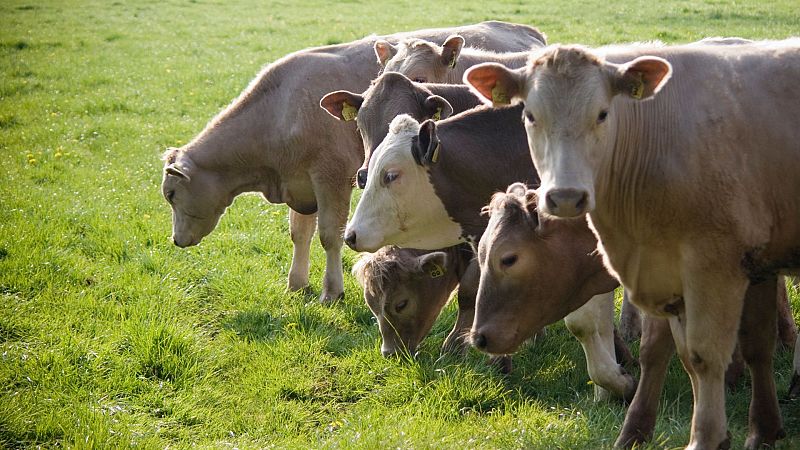Farmers Reap Benefits as EU and UK Strengthen Trade Ties

On Monday, the European Union and the United Kingdom declared they had struck a pact aimed at bolstering their collaboration. This marks the initial agreement of its kind since the UK exited the union back in 2020.
In addition to detailing fresh setups related to travel, defense, and fishing, the "reset" zeroes in on agriculture, a sector significantly affected by Brexit.
As part of the new arrangement, British goods from animals and plants should encounter reduced scrutiny upon being sent to the European Union. This means that, under the suggested SPS (sanitary and phytosanitary) accord, the UK might regain permission to sell uncooked sausages and hamburgers within the EU market after having been restricted post-Brexit. Nevertheless, specific procedures for putting this into action have yet to be finalised.
To eliminate trade barriers, the UK needs to synchronize its agricultural and food safety regulations with those of the EU, monitored by the European Court of Justice. While many standards are already quite alike, the British government mentioned there will be "a shortlist of minor deviations from this dynamic alignment."
Earlier this year, the Office for Budget Responsibility projected that Brexit would lead to UK exports and imports being approximately 15% lower in the long term.
Regarding food items, exports to the EU dropped approximately 34% from 2019 to 2024, as reported by the UK’s Food & Drink Federation.
Checking the temperature for upcoming adjustments
"British exporters have faced significant challenges due to the red tape associated with moving food, plants, and animals across the border into the EU," said Charles Grant, director of the Centre for European Reform, during an interview with travelcheapwithoutmissingout.
So I believe the agreement regarding plant and animal health is really quite crucial. It may not have major economic implications overall, but it holds significance for a specific part of the UK economy.
A trade pact concerning sanitary and phytosanitary measures between the EU and the UK might increase UK agricultural and food exports to the European market by 22.5% and boost imports from the EU by 5.6%, as indicated in a report released by Aston University previously.
That would raise total UK trade in goods and services by 0.3%, researchers from the CER added, which would only provide a very small lift to GDP.
“An SPS deal is also important in another way,” said Grant. “The British will have to agree to follow EU rules as they change on SPS. If you do it in that instance, you could do it in other areas too, like energy, for example, or chemicals or pharmaceuticals.”
Regarding products arriving from the EU into the UK, shippers aren't subjected to comprehensive inspections just yet; however, Monday’s deal aims to relax upcoming limitations.
Trade barriers have not been completely removed.
The declaration made on Monday does not imply that the UK has rejoined the customs union, wherein no tariffs are imposed when products move between different EU countries.
"You haven't fully navigated all the challenges yet, unlike what we'd face had we rejoined the single market and the customs union. However, that was never an option according to statements from the government," explained Jill Rutter, a senior research fellow with UK in a Changing Europe and King’s College London, during her conversation with travelcheapwithoutmissingout.
You will still require individuals to handle your customs formalities for you and must have VAT representatives in EU countries and similar requirements.
Although Rutter mentioned that the agreement might notably assist small and medium-sized enterprises with burdensome red tape, she also noted that companies would be eagerly awaiting further information.
The document refers to it as a refreshed plan. However, it’s more like an extensive plan for numerous upcoming talks since quite a bit hasn’t truly been settled yet... we'll have to wait and see how these conversations unfold.
The President of the UK’s National Farmers Union, Tom Bradshaw, voiced similar concerns in the organization’s press release.
The government's aim to simplify trading activities with our biggest international ally is appreciated. As usual in such pacts, the fine print holds significant importance. We'll be closely examining the specific elements of this agreement as more details emerge over the next few weeks, along with ongoing discussions between the UK Government and the EU.
Broader motivations for improved relations
Amidst Russian aggression and an increasingly unpredictable US leadership, stronger relationships between the EU and UK align with broader geopolitical strategies, according to Guntram Wolff, a senior fellow at Bruegel, who spoke to travelcheapwithoutmissingout.
“The economic significance of fisheries and other economic cooperation is relatively minor. …A more important economic question at this point is how deeply the defence industrial base will be integrated across the Channel.”
On Monday, the two sides signed a defence and security partnership, meaning they will coordinate on sanctions and some security policies. It could also allow the UK to access a €150bn fund of loans for defence projects, backed by the EU budget. However, whether the UK can fully access this will depend on the terms of the partnership, which remain under negotiation.
"The immediate economic effects of today’s deals will be small yet favorable," stated Jonathan Portes, an economist and public policy professor at King's College London.
Although food, fishing, and youth mobility have made the news, enhanced collaboration on energy and defense acquisitions hold greater significance and promise mutual benefits—despite many specifics remaining unresolved.
Post a Comment for "Farmers Reap Benefits as EU and UK Strengthen Trade Ties"